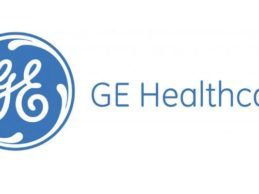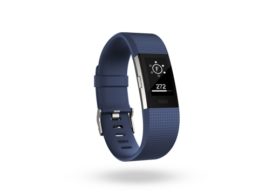Research shows us that security breaches can greatly impact a healthcare organization’s reputation. Unfortunately, healthcare leaders are stuck in the cross hairs of consumers and hackers. While consumers want transparency, access to information and assurance their personal information will remain safe, hackers are busy compromising patient information at a faster speed than ever before.As healthcare IT organizations strive to become more accessible and “open” to support patient engagement
Read More
Health IT & Digital Health-Opinion | Op-Eds | Guest Columns | Analysis, Insights - HIT Consultant
Evolving Hacker Behaviors to Disrupt Healthcare Services
Most people don’t spend much time thinking about what complex organizations hospitals are. Whether anticipating the joyful arrival of a newborn baby or worrying about an unexpected illness or injury, hospital visitors aren’t usually thinking about cybersecurity. Even most hospital employees only see a piece of the big picture, with little reason to consider operational risk.But lots of people are indeed losing sleep over cyber threats to patient safety — IT administrators and clinical engineers
Read More
4 Ways Hospitals Should Approach Buying Healthcare IT Systems Today
I’m proud to lead a group of intelligent and energetic technology professionals committed to developing a robust healthcare IT system that is (1) easy for clinicians to use, (2) improves patient health and (3) doesn’t bankrupt hospital budgets. We think any sustainable system must have those three key requirements.And how is healthcare doing thus far?The EHRs available today are developing rapidly. Vendors are making frequent and impactful improvements to improve system usability. Clinicians are
Read More
Why The VA Should Stick with VistA EHR
At the end of last month, President Trump dismissed VA Secretary David Shulkin, MD, following weeks of speculation that he would do just that. In Shulkin’s place, Trump nominated his personal White House physician, Rear Admiral Ronny Jackson, a physician who’s never managed a large healthcare organization.Shulkin’s dismissal left unsigned the contract with Cerner to replace the VA’s venerable VistA healthcare IT platform. It’s not that the Cerner deal is really threatened without Shulkin—VA
Read More
GE Healthcare IT Sell-Off: The First Cut Is The Deepest?
As news broke of the first GE Healthcare business unit to be sold, some may have been underwhelmed both by the scale and symbolism of this deal. However, this first announcement does provide some useful indicators for what to expect from the future of GE Healthcare with John Flannery at the helm.“I Think I See the Light”Firstly, and most positively, the fact that GE has made a move to trim its healthcare portfolio should be applauded. We wrote about this in our review of GE and its major peers
Read More
Artificial Intelligence in Healthcare – Do the Benefits Outweigh the Challenges?
As healthcare professionals, it seems we can't escape the buzz and hype of artificial intelligence (AI) today. However, unlike other industries, healthcare’s adoption of AI is still in its infancy, in part, due to many providers still updating their tools and processes for the digital age. According to an Accenture analysis, growth in the AI health market is expected to reach $6.6 billion by 2021 and key clinical health AI applications can potentially create $150 billion in annual savings for
Read More
How do Clinical Wearables Impact Patient Care and Quality of Life?
Health technology and clinical wearables are hot topics in the healthcare and pharmaceutical industries. They are creating waves of excitement and talking points for debate, while also topping many of the healthcare trends of this year.One source suggests that 2018 will be the year of digital health technology, and it is quickly becoming apparent that clinical wearables are one of the most sought-after innovations when it comes to digital health. With the market growing and diversifying in
Read More
Is Your Health Data More Safe or Vulnerable in the Cloud?
The illusion of control is tempting, even intoxicating. It’s also a common characteristic that almost all humans manifest to one degree or another as we work to satisfy competence motives, the need for security, survival instincts.Because proximity often feels like control, it might also get in the way of secure healthcare IT.“Files stored in reliable cloud services are some of the most secure files you can have, provided you have good passwords,” says software engineer John Miller, PhD.
Read More
How Big Data Enhances the Patient Experience
Because the data capacity for flash drives and secure digital memory card storage increased immensely over the past two decades, mobile phones have gone from simple handsets used for text messaging, phone calls, and the occasional game of Snake, to sophisticated devices that support high-fidelity music libraries, high-definition videos, high-resolution photos and elaborate video games.Consumer expectation for data storage has also grown over those two decades. The rapid development of new
Read More
Post-HIMSS18: Where are the Interoperable Killer Apps in Healthcare?
In his HIMSS keynote address, Alphabet’s former executive chairman and now current technical advisor Eric Schmidt warned attendees that the “future of healthcare lies in the need for killer apps.” But he also cautioned that the transition to a better digitally connected health future isn't just one killer app, but a system of apps working together in the cloud. He also advocated transforming the massive amount of data held in EHRs into information and knowledge.Schmidt is correct in his
Read More









